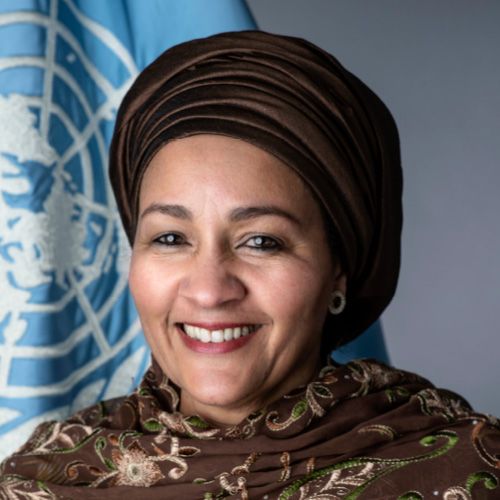On Wednesday, the UN called for a "sustainable industrial transformation" to reduce the growing economic disparity between nations, achieve aggressive climate goals, and realize the Sustainable Development Goals (SDGs) by 2030.
The 2023 Financing for Sustainable Development Report: Financing Sustainable Transformations states that "urgent, massive investment" is required to speed up the positive transformation of the electricity supply industry, farming, transportation, and construction amid growing food and energy crises fueled by Russia's full-scale invasion of Ukraine, an uncertain global economic outlook, and the escalating effects of climate change.
The paper asserts that there are indicators of sustainable growth that might be advantageous to all nations and provide a workable framework for achieving the SDGs, such as the tremendous surge in internet use, with more than 38,000 new users going online every hour.
In the report's introduction, UN Secretary-General António Guterres stated that poor nations are slipping farther behind if they lack the resources to invest in sustainable development and reform their energy and food systems.
"Every nation faces blatant and evident risks in a world of haves and have-nots. We urgently need to reestablish international collaboration and use multilateral action to address our current issues.
The paper emphasizes that some of the essential reforms are already happening. A record $1.1 trillion was invested in the global energy transition in 2022 as a result of the energy crisis brought on by the war in Ukraine.
For the first time ever, investments in the energy transition industry outpaced those in the fossil fuel sector in 2022, however the majority of them were made in China and developed nations, according to the research.
Contrary to their industrialized counterparts, the majority of emerging countries lack the resources for investment, the survey reveals.
Most poor nations are under tremendous economic strain as a result of factors like climate change, the conflict in Ukraine, the COVID-19 epidemic, and debt payments that are up to twice as expensive as in 2019. This makes it difficult for these countries to finance reform.
Comparing post-pandemic expenditure by country, rich nations spent an average of $12,200 per person, which is 30 times more than developing nations ($410) and 610 times more than least developed nations ($20).
We will not fulfill our common commitment to the 2030 Agenda for Sustainable Development without completing a reform of the international financial system and scaling up investments in the SDGs, according to Amina Mohammed, deputy secretary-general of the United Nations.
We know what to do and how to execute it, which is fantastic news. We all need to move more quickly and leave no one behind as we embark on crucial reforms in the fields of energy, food, and education as well as ushering in a new green industrial and digital era.
Whereas industrialization has historically been the driving force behind economic growth, the research advocates for a "new generation of sustainable industrial policies" to scale up investments and establish the groundwork for the future.
The paper asserts that there are numerous prospects for inclusive growth in the manufacturing, green energy, and agroindustry sectors.
The current technology's quick development suggests that the shift to sustainable industrialisation and growth may happen just as quickly.
For instance, 338 million more individuals utilized the Internet frequently between 2021 and 2022, or around 38,600 more people per hour.
The study cautions that manufacturing capacity is still unequal. In the least developed nations of Africa, manufacturing value added declined from 10% of GDP (gross domestic product) in 2000 to 9% in 2021, not doubling as the SDG timeframe calls for.
To achieve low-carbon transitions that will slow climate change to the necessary rate, create decent jobs, and spur economic growth while also ensuring gender equality, which is crucial for productivity, it will take targeted policies from governments.
The 2023 Financing for Sustainable Development Report recommends a mix of improving tax structures, opening up the market to greater private investment, and stepping up global public investment and development collaboration.
To generate enough money and free oneself from the burden of unsustainable debt repayment, changes to the global financial system are also necessary.
The research cautions that sustainable development will not be possible if changes are fragmented, lacking, or do not take the SDGs into consideration as international institutions attempt to adapt to the fast changing demands of nations.
The chief of the UN Department of Economic and Social Affairs (DESA), which oversaw the creation of the inter-agency study, Li Junhua, asserted that "we have the solutions to avoid a lasting sustainable development divide and prevent a lost decade for development."
"We must muster the political will to overcome the escalating political tensions, the fracturing of international alliances, and the unsettling nationalist trends and seize this opportunity to invest urgently in our shared future."










.jpg)